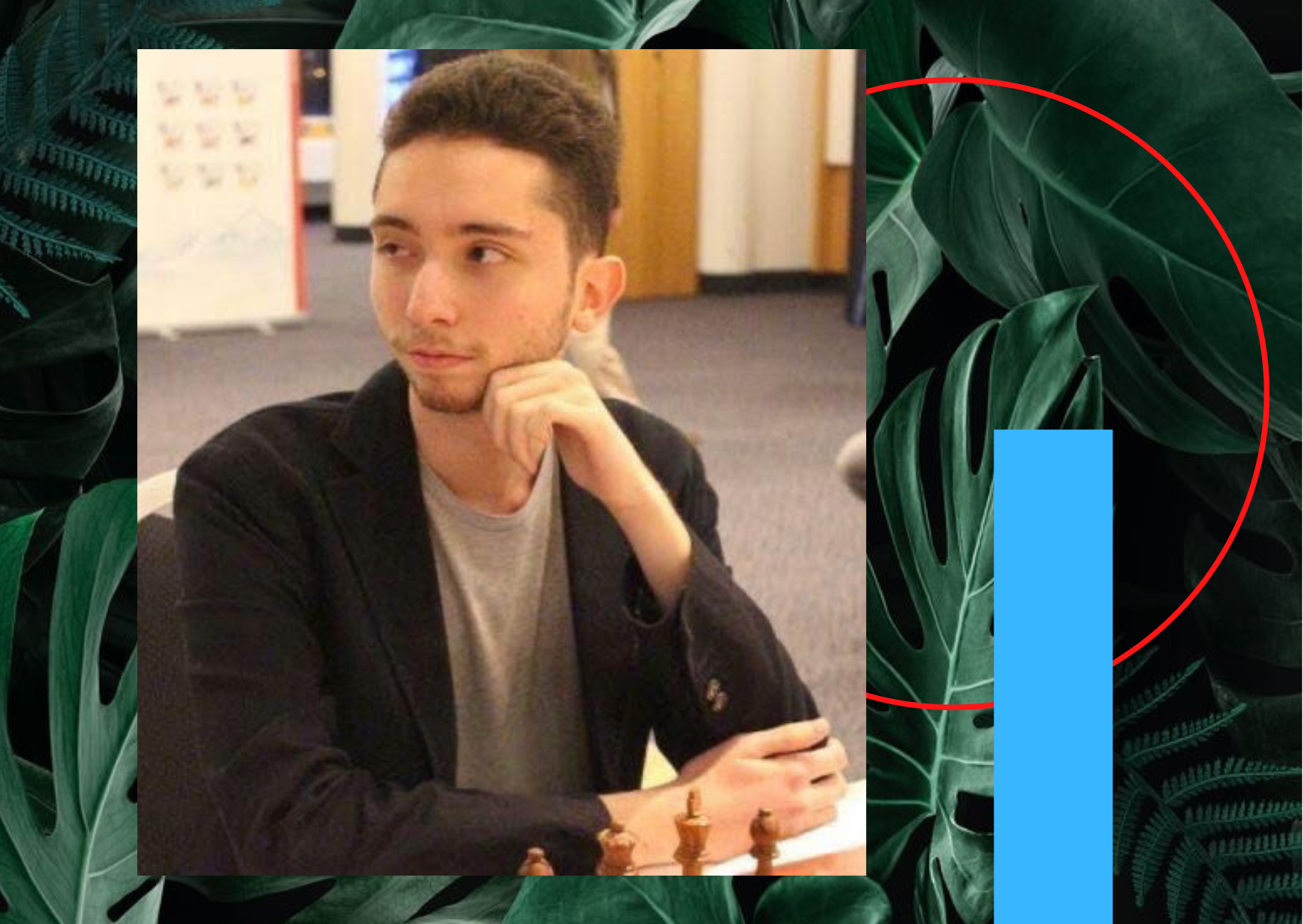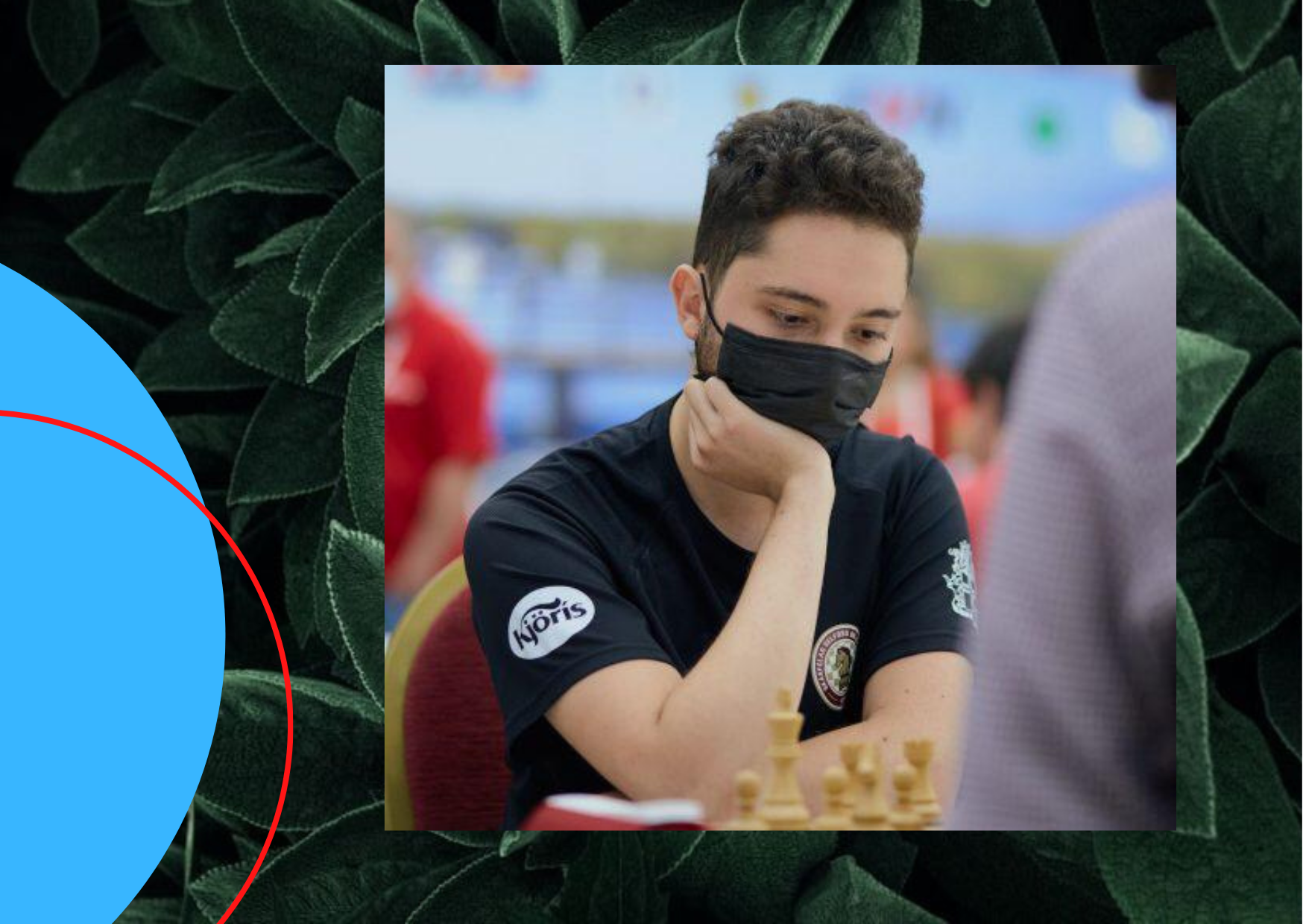"I Don’t Know a Thing More Satisfying Than a Win at Chess"
.png)
In the recent Chess Club Cup tournament, held in Macedonia past September, ICEF bachelor student Semyon Lomasov earned the title of grandmaster. In this interview, Semyon shares what he thinks about chess as a career, how intuition can change approaches, and how the advent of artificial intelligence has revolutionized chess.
How I fell in love with chess
Chess became a part of my life thanks to my father. He loved playing it and taught me when I was four. At five, I joined a chess club at the children’s sports school and I started to make some serious progress, which was very encouraging both to me and my parents. School was easy, so I spent most of my free time playing chess. And I continued to play professionally in my first year of university studies. My logical thinking skills and the solid knowledge I got from school have been of great help in my studies so far. But, the pandemic has put tournaments on hold and I haven’t played for eighteen months. There’s a chess club at HSE, but since I am a professional player, getting a partner is not that easy.
Chess is a lifestyle. It has been with me since I was a child and it is much more than just a hobby. I know exactly where I should improve to play better and how to prepare for tournaments. Tournaments are important to participate in – not only in terms of professional growth and practice of combinations. They help cultivate useful personality traits. Like any sport, chess builds character to tackle daily challenges.

I don’t know a thing more satisfying than a win at chess. An excellent exam grade doesn’t even come close. By keeping you thinking, discovering, setting tasks and working them out, chess elevates your creativity. It is undoubtedly good for the brain and stimulates thinking outside the box.
Chess as a career
There is an opinion that all chess players are brilliant mathematicians, but I wouldn’t agree. There are as many humanities-minded people as there are mathematicians among chess players. Moreover, the two bents aren’t mutually exclusive, I think. The top chess players of today may not have a college degree. Professional chess is rather a vocation that requires a huge amount of time. So, when you turn 17 and are faced with the choice between college and professional chess, as was the case with me, it’s never easy. I chose college.
Without complete dedication, the highest you can make in chess is top 50
It’s a tough choice and always a personal decision.
There’s statistics for each player that shows their rating based on the games played and the winning percentage. Grandmaster is the highest title a chess player can attain, for which there are two or more grandmaster norms to be achieved. I hold the 70th place in Russia and the 450th in the world, although I must have dropped a bit after the tournaments stopped because of the pandemic.
I probably wouldn’t have returned to professional chess if it wasn’t for one tournament where I found that everyone I played with earlier had gone so far ahead of me. It hit me. I wanted to prove I was good enough, so I signed up for quite a number of tournaments this past summer and played a total of 37 games. Besides, I now have a great coach.
Competing with neural nets
Until 2018, chess training software would be written manually by programmers. But one problem all chess engines have is that of all billions of possible positions and variations they are programmed to select one best, whereas chess is actually about identifying the right path pattern, rather than counting up billions of moves. That’s why human logic and intuition are important. Neural nets follow a different paradigm and course of computation. In 2018, when neural networks literally revolutionized chess engines, the latter acquired the “understanding” of solutions – a factor critical to chess position analysis.
Before the onset of AI, players including myself thought chess might soon become a game to almost always end in a draw, since there remained no files to be analyzed with the machine. Instead, AI gave chess a new life. This coincided with my enrollment in ICEF. When I arrived at the tournament after the break, I was horrified to find how greatly chess had changed. Everyone else seemed to have advanced so far ahead by literally absorbing the culture of neural networks, but not me.
About tournaments
The recent European Chess Club Cup tournament in Macedonia spanned seven days and was held offline. Chess is a sport that can’t be moved online for many reasons. It has a special culture that you feel over the board when you communicate with your opponent and meet new people in the international chess community. This is a unique experience of thrill and excitement when you are a part of the team. The team I played for took fifth place, which is a very good result. For example, the team that had the reigning world champion, Magnus Carlsen, got thirteenth.

Tournaments per se do not give you any special bonuses to add to your career portfolio. You just play to increase your rating to play even more. If you manage to get to the top, you can expect to be invited to major tournaments with serious prizes, if not, to smaller ones. Many of those who don’t make it to the top choose to try themselves as chess commentators or coaches. As a rule, tournament organizers either pay players of my level for participation or raise large prize pools, although sometimes, in rare cases, players come to play for the sake of chess or for more experience.
Many chess players have their own YouTube channels. I record videos for Levitov Chess Channel and I am often invited to comment on tournaments as an expert. For me, commenting and coaching are comparable to the game itself.
About chess schools
There are some very strong national schools with different approaches to chess tactics. Traditionally, before the era of computers began, the dominant approach was theoretical. It involved a large number of positions to be learned and principles to be derived from them for best combinative and positional solutions. This distinguished, for example, the Soviet chess school. But, when computers appeared in the early 2000s, they proved a very strong opponent and they seem to better humans year on year.
Beating a chess engine is as challenging as attempting to calculate a derivative faster than computer
Modern chess players have the opportunity to become better positionally by analyzing the computer moves and developing their own chess intuition. Alireza Firouzja, 18-year-old French-Iranian chess player, who is currently number one in the junior rating, confessed he has a ridiculously low level of understanding of positions. It is his intuition that makes him a chess prodigy. For me, chess builds more on phenomenal qualities than on pure logic and analytics.
There’s perhaps only one country that can be called a generator of chess grandmasters and that’s India. It runs a national project supporting Indian chess players. The current top 200 rating has five under-18 players from India, and three of them are not even 16. In a few years’ time, when these guys enter the top 10, it will be possible to say that a new, Indian school of chess is born.
About ICEF
When the time came for me to choose my university, I was not sure what major I wanted to pursue. My choice fell on ICEF, because my brother studied there and it was recommended by some of my chess friends. I see Economics as a major that will always benefit its learners no matter the career path they choose. And English as the language of instruction has already benefitted me greatly. I’m in my third year now but still don’t have a vision for my future. What I do know is that the skills I am going to get will definitely come in handy in my future career.
I am still finding myself professionally. I am coaching and I do commentaries, but this is more of a side job than a goal. The reason I don’t devote myself entirely to chess is that there are many other things I take interest in and I haven’t made the choice of my life yet. I’ll be trying myself in different roles to find that something which is new and unconventional. Chess will stay in my life forever as a useful activity I enjoy.